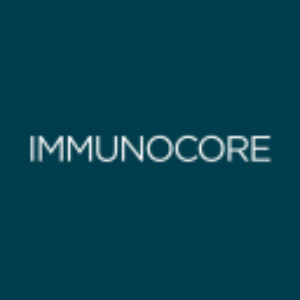Immunocore converts Phase 2/3 TEBE-AM clinical trial into registrational Phase 3 trial evaluating KIMMTRAK for previously treated advanced cutaneous melanoma
Rhea-AI Summary
Immunocore has announced the conversion of its Phase 2/3 TEBE-AM trial into a registrational Phase 3 trial to evaluate KIMMTRAK (tebentafusp-tebn) for previously treated advanced cutaneous melanoma. Following FDA consultation, all patients from the Phase 2/3 trial will be included in the Phase 3 intent-to-treat population. The Phase 3 trial will continue with three arms: KIMMTRAK monotherapy, KIMMTRAK with pembrolizumab, and a control.
This decision is expected to accelerate the time to the final overall survival analysis. The conversion was motivated by KIMMTRAK’s promising results in uveal melanoma and Phase 1 cutaneous melanoma trials. The Phase 1b study showed that KIMMTRAK, combined with checkpoint inhibitors, had a one-year overall survival rate of approximately 75% in patients with metastatic cutaneous melanoma.
Positive
- Conversion to Phase 3 trial accelerates time to final overall survival analysis.
- FDA consultation confirms trial approach, adding credibility.
- Inclusion of all Phase 2/3 patients in Phase 3 enhances data robustness.
- Three-arm trial design allows comprehensive testing of KIMMTRAK regimes.
- Phase 1b data shows 75% one-year overall survival rate with KIMMTRAK and checkpoint inhibitors in metastatic cutaneous melanoma patients.
Negative
- No new financial metrics or revenue projections provided.
- Potential increased costs and duration due to conversion to Phase 3.
- Risk of Phase 3 trial not meeting endpoints, affecting stock value.
News Market Reaction 1 Alert
On the day this news was published, IMCR declined 1.30%, reflecting a mild negative market reaction.
Data tracked by StockTitan Argus on the day of publication.
Immunocore converts Phase 2/3 TEBE-AM clinical trial into registrational Phase 3 trial evaluating KIMMTRAK for previously treated advanced cutaneous melanoma
Following recent consultation with FDA, all patients randomized from start of TEBE-AM Phase 2/3 trial will be included in the Phase 3 intent-to-treat population
Phase 3 will continue three arms: KIMMTRAK monotherapy, KIMMTRAK in combination with pembrolizumab, and control
Expected to accelerate time to final Phase 3 overall survival analysis
(OXFORDSHIRE, England & CONSHOHOCKEN, PA & ROCKVILLE, MD, US, 29 May 2024) Immunocore Holdings plc (Nasdaq: IMCR) (“Immunocore” or the “Company”), a commercial-stage biotechnology company pioneering and delivering transformative immunomodulating medicines to radically improve outcomes for patients with cancer, infectious diseases and autoimmune diseases, today announced that the TEBE-AM Phase 2/3 clinical trial has been converted into a Phase 3 trial.
The Phase 2/3 TEBE-AM trial was designed to evaluate KIMMTRAK® (tebentafusp-tebn), as monotherapy and in combination with pembrolizumab, versus a control arm, for the treatment of patients with previously treated advanced cutaneous melanoma. The trial was originally designed as an adaptive Phase 2/3 trial with the optionality to review Phase 2 data and drop an arm. Following consultation with the FDA, the Company has decided to conduct the trial solely as a Phase 3 with the primary endpoint of overall survival. As a result of the recent rapid accrual, the Company projects that the Phase 3 trial would be mostly enrolled by the time the Phase 2 overall survival would have matured. In addition, the three arm Phase 3 will allow more robust testing of KIMMTRAK as monotherapy and in combination versus a control arm. Finally, with all patients randomized to date to be included in the intent-to-treat population, the time to final analysis of the Phase 3 trial will be accelerated.
Mark Moyer, SVP, Regulatory Affairs, Immunocore said: “The decision to launch a registrational trial in cutaneous melanoma was based on KIMMTRAK’s overall survival benefit in uveal melanoma, and promising clinical activity as monotherapy and in combination with immune checkpoint therapy in Phase 1 cutaneous melanoma trials. To allow robust testing of two KIMMTRAK regimens and to accelerate the time to primary analysis, we decided, in consultation with the FDA, to amend the protocol into a single Phase 3 registrational study.”
The registrational TEBE-AM trial was initiated following results from a Phase 1b trial of tebentafusp in combination with checkpoint inhibitors in metastatic cutaneous melanoma (mCM). The Phase 1b data showed that the maximum target doses of tebentafusp (68 mcg) plus durvalumab (20 mg/kg) were well tolerated, and that, in mCM patients who progressed on prior anti-PD(L)1, the combination demonstrated a one-year overall survival rate of ~
About ImmTAC® molecules for cancer
Immunocore’s proprietary T cell receptor (TCR) technology generates a novel class of bispecific biologics called ImmTAC (Immune mobilizing monoclonal TCRs Against Cancer) molecules that are designed to redirect the immune system to recognize and kill cancerous cells. ImmTAC molecules are soluble TCRs engineered to recognize intracellular cancer antigens with ultra-high affinity and selectively kill these cancer cells via an anti-CD3 immune-activating effector function. Based on the demonstrated mechanism of T cell infiltration into human tumors, the ImmTAC mechanism of action holds the potential to treat hematologic and solid tumors, regardless of mutational burden or immune infiltration, including immune “cold” low mutation rate tumors.
About TEBE-AM - Phase 3 registrational trial with tebentafusp in previously treated advanced cutaneous melanoma
The Phase 3 TEBE-AM trial is randomizing patients with second-line or later cutaneous melanoma who have progressed on an anti-PD1, received prior ipilimumab and, if applicable, received a BRAF kinase inhibitor. Patients are randomized to one of three arms, including tebentafusp, as monotherapy or in combination with an anti-PD1, and a control arm. The primary endpoint is overall survival.
About Cutaneous Melanoma
Cutaneous melanoma (CM) is the most common form of melanoma. It is the most aggressive skin carcinoma and is associated with the vast majority of skin cancer-related mortality. The majority of patients with CM are diagnosed before metastasis and survival remains poor for the large proportion of patients with metastatic disease. Despite recent progress in advanced melanoma therapy, there is still an unmet need for new therapies that improve first-line response rates and duration of response as well as for patients who are refractory to first-line treatments.
About Uveal Melanoma
Uveal melanoma is a rare and aggressive form of melanoma, which affects the eye. Although it is the most common primary intraocular malignancy in adults, the diagnosis is rare, and up to
About KIMMTRAK®
KIMMTRAK is a novel bispecific protein comprised of a soluble T cell receptor fused to an anti-CD3 immune-effector function. KIMMTRAK specifically targets gp100, a lineage antigen expressed in melanocytes and melanoma. This is the first molecule developed using Immunocore’s ImmTAC technology platform designed to redirect and activate T cells to recognize and kill tumor cells. KIMMTRAK has been approved for the treatment of HLA-A*02:01-positive adult patients with unresectable or metastatic uveal melanoma in the United States, European Union, Canada, Australia, and the United Kingdom.
IMPORTANT SAFETY INFORMATION
Cytokine Release Syndrome (CRS), which may be serious or life-threatening, occurred in patients receiving KIMMTRAK. Monitor for at least 16 hours following first three infusions and then as clinically indicated. Manifestations of CRS may include fever, hypotension, hypoxia, chills, nausea, vomiting, rash, elevated transaminases, fatigue, and headache. CRS occurred in
Skin Reactions
Skin reactions, including rash, pruritus, and cutaneous edema occurred in
Elevated Liver Enzymes
Elevations in liver enzymes occurred in
Embryo-Fetal Toxicity
KIMMTRAK may cause fetal harm. Advise pregnant patients of potential risk to the fetus and patients of reproductive potential to use effective contraception during treatment with KIMMTRAK and 1 week after the last dose.
The most common adverse reactions (≥
For more information, please see full Summary of Product Characteristics (SmPC) or full U.S. Prescribing Information (including BOXED WARNING for CRS).
About KIMMTRAKConnect
Immunocore is committed to helping patients who need KIMMTRAK obtain access via our KIMMTRAKConnect program. The program provides services with dedicated nurse case managers who provide personalized support, including educational resources, financial assistance, and site of care coordination. To learn more, visit KIMMTRAKConnect.com or call 844-775-2273.
About Immunocore
Immunocore is a commercial-stage biotechnology company pioneering the development of a novel class of TCR bispecific immunotherapies called ImmTAX – Immune mobilizing monoclonal TCRs Against X disease – designed to treat a broad range of diseases, including cancer, autoimmune, and infectious disease. Leveraging its proprietary, flexible, off-the-shelf ImmTAX platform, Immunocore is developing a deep pipeline in multiple therapeutic areas, including nine active clinical and pre-clinical programs in oncology, infectious diseases, and autoimmune diseases. The Company’s most advanced oncology TCR therapeutic, KIMMTRAK has been approved for the treatment of HLA-A*02:01-positive adult patients with unresectable or metastatic uveal melanoma in the United States, European Union, Canada, Australia, and the United Kingdom.
Forward Looking Statements
This press release contains “forward-looking statements” within the meaning of the safe harbor provisions of the Private Securities Litigation Reform Act of 1995. Words such as “may,” “will,” “believe,” “expect,” “plan,” “anticipate,” “estimate,” and similar expressions (as well as other words or expressions referencing future events or circumstances) are intended to identify forward-looking statements. All statements, other than statements of historical facts, included in this press release are forward-looking statements. These statements include, but are not limited to, statements regarding the expected clinical benefits of KIMMTRAK; the potential of KIMMTRAK for patients with uveal and cutaneous melanoma; and the Company’s expectations regarding the design, progress, timing, randomization and scope of the Phase 3 trial evaluating KIMMTRAK for previously treated advanced cutaneous melanoma. Any forward-looking statements are based on management’s current expectations and beliefs of future events and are subject to a number of risks and uncertainties that could cause actual events or results to differ materially and adversely from those set forth in or implied by such forward-looking statements, many of which are beyond the Company’s control. These risks and uncertainties include, but are not limited to, the impact of worsening macroeconomic conditions on the Company’s business, financial position, strategy and anticipated milestones, including Immunocore’s ability to conduct ongoing and planned clinical trials; Immunocore’s ability to obtain a clinical supply of current or future product candidates or commercial supply of KIMMTRAK or any future approved products, including as a result of health epidemics or pandemics, war in Ukraine, the conflict between Hamas and Israel, the broader risk of a regional conflict in the Middle East, or global geopolitical tension; Immunocore’s ability to obtain and maintain regulatory approval of its product candidates, including KIMMTRAK; Immunocore’s ability and plans in continuing to establish and expand a commercial infrastructure and to successfully launch, market and sell KIMMTRAK and any future approved products; Immunocore’s ability to successfully expand the approved indications for KIMMTRAK or obtain marketing approval for KIMMTRAK in additional geographies in the future; the delay of any current or planned clinical trials, whether due to patient enrollment delays or otherwise; Immunocore’s ability to successfully demonstrate the safety and efficacy of its product candidates and gain approval of its product candidates on a timely basis, if at all; competition with respect to market opportunities; unexpected safety or efficacy data observed during preclinical studies or clinical trials; actions of regulatory agencies, which may affect the initiation, timing and progress of clinical trials or future regulatory approval; Immunocore’s need for and ability to obtain additional funding, on favorable terms or at all, including as a result of worsening macroeconomic conditions, including inflation, interest rates and unfavorable general market conditions, and the impacts thereon of the war in Ukraine, the conflict between Hamas and Israel, and global geopolitical tension; Immunocore’s ability to obtain, maintain and enforce intellectual property protection for KIMMTRAK or any of its product candidates it or its collaborators are developing; and the success of Immunocore’s current and future collaborations, partnerships or licensing arrangements. These and other risks and uncertainties are described in greater detail in the section titled "Risk Factors" in Immunocore’s filings with the Securities and Exchange Commission, including Immunocore’s most recent Annual Report on Form 10-K for the year ended December 31, 2023 filed with the Securities and Exchange Commission on February 28, 2024, as well as discussions of potential risks, uncertainties, and other important factors in the Company’s subsequent filings with the Securities and Exchange Commission. All information in this press release is as of the date of the release, and the Company undertakes no duty to update this information, except as required by law.
Contact Information
Communications
Sébastien Desprez, Head of Communications
T: +44 (0) 7458030732
E: sebastien.desprez@immunocore.com
Follow on Twitter: @Immunocore
Investor Relations
Clayton Robertson, Head of Investor Relations
T: +1 (215) 384-4781
E: ir@immunocore.com









